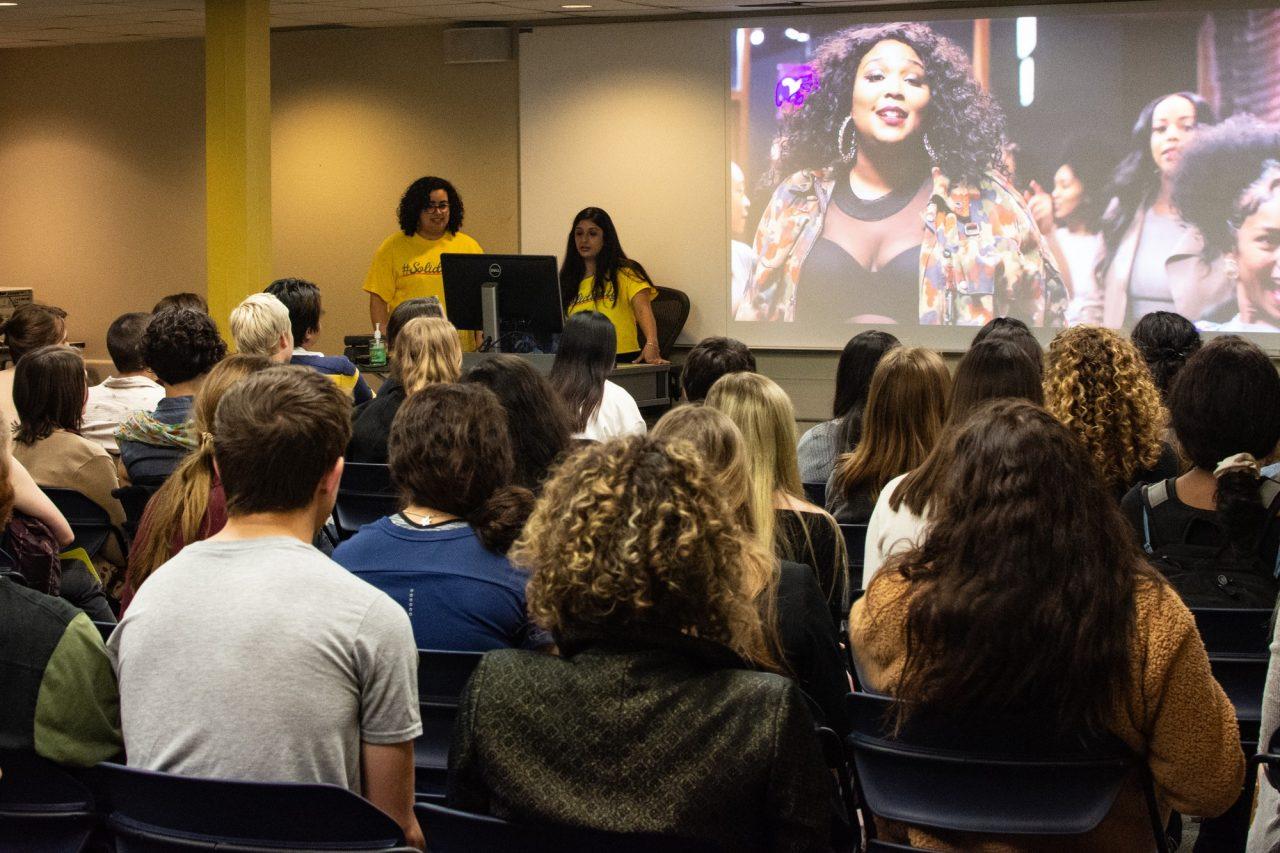Photo by Matthew Claybrook
In an attempt to create an environment that encourages conversation and education about social justice and inclusion, the Diversity and Inclusion Office (DIO) held its inaugural Solidarity Summit on Friday, Feb. 22.
“I think that on this campus, social justice, solidarity, equality, equity — all of these things should be prioritized and should be given a stage. I think that this is a start of a stage for those kind of things, but we need more for it. I hope this is a start to something bigger and better on this campus,” said sophomore Aria Gaston-Panthaki, one of seven DIO social justice peer educators.
The summit was held in Coates Student Center, beginning in the Fiesta Room before breaking out into various sessions and workshops facilitated by DIO social justice peer educators among other students. Around 100 members of the Trinity community, most of whom were students, attended. Themes of these sessions included white standards of beauty, how to practice allyship and hair politics.
“In order to be an ally or engage in allyship, you must be committed to the people you seek to serve. It’s an ongoing commitment and actions that says, ‘We are in this together, even though I might not know everything about what you are experiencing. I might not have all the answers. I am here with you, in community with you,’ ” wrote Alli Roman, director for Diversity and Inclusion, over an email. “Engaging in allyship lessens the load, the burden that certain people have to carry because of systemic oppression as well as actively working to disrupt and dismantle those systems.”
Sophomore Jude Casanova attended the breakout session concerning hair politics.
“Hair politics is something that I haven’t had a lot, if any, contact with,” Casanova said. “I think that’s a huge reason to go to these types of events, to just get educated because the more educated you are the more you can check your biases and prejudices.”
Gaston-Panthaki explained why it’s important to listen to people share their experiences.
“When you’re reading about a whole bunch of facts, it’s just facts. But when you’re talking about people who have really experienced, they talk about their life experience, it becomes real, and it’s not a distance. It’s a something that happens on this campus,” Gaston-Panthaki said. “People who are not educated on these topics can become educated, people who are passionate have an outlet to talk about what they’re passionate about, and solidarity in general is just a big thing for both the DIO, the social justice peer educators, and it should be for this campus.”
Roman said the community should recognize their shortcomings and that recognition should extend to individuals as well.
“I think we still need to know who we are as a community, both on an individual and collective level, and that means uncovering the good, bad and ugly. Once we understand who we are, we need to decide who we want to be and stand in that truth. I think these things will help us move forward,” Roman wrote. “But we, as a community, also need to be committed to who we want to be, be committed to each other and committed to doing better. When we know better, we do better.”
Roman has hopes for future iterations of the Summit.
“I would love to see the summit grow to include multiple days of conversation, education and engagement,” Roman wrote. “I would also love to see faculty and staff present or even co-present with students. I love the idea of not only creating an educational space for our Trinity community, but to also provide a professional development opportunity for those who present. Students on this campus are doing amazing work regarding social justice, so this is a great opportunity to highlight their work and have them spark some thoughtful and nuanced conversations.”







